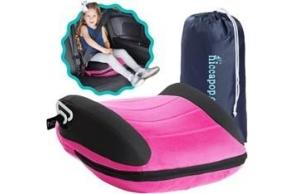Health Canada is recommending consumers immediately stop using the UberBoost inflatable booster car seat, saying the product could increase the risk of injury during a collision.
The booster seats are sold on Amazon and are marketed as a convenient and space-saving way to ensure children have a booster seat with them wherever they go.





